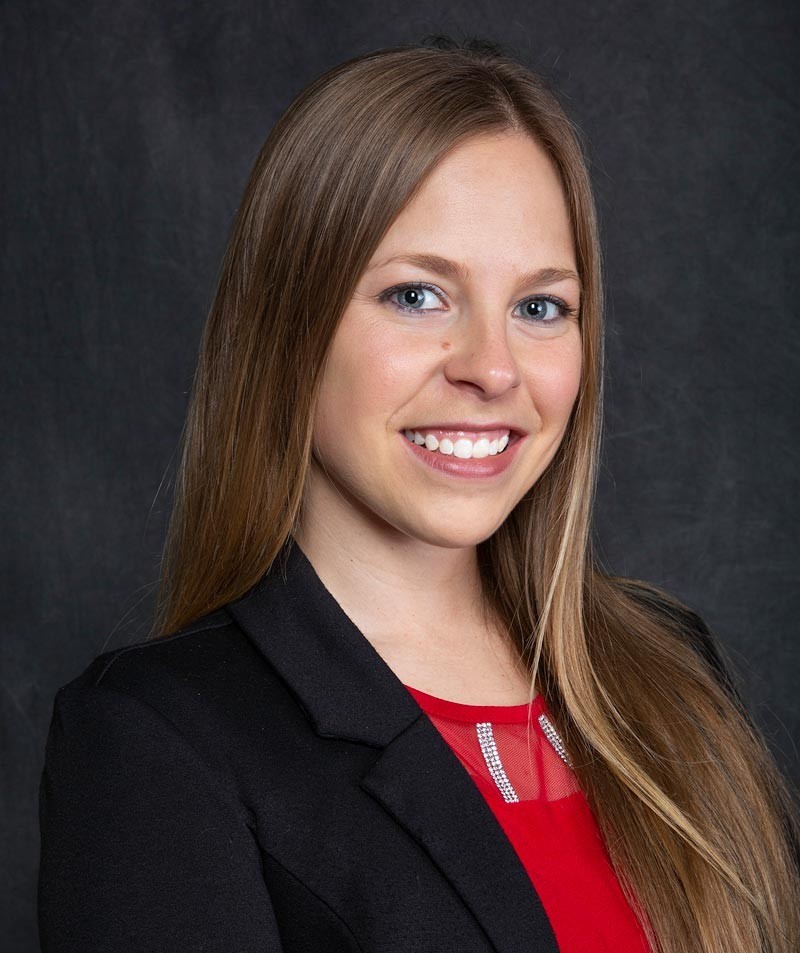New faculty member wants students to get excited about environmental engineering
1

Lisa Stabryla has joined the dynamic civil, materials, and environmental engineering faculty as an assistant professor.
She will be teaching Introduction to Environmental Engineering and Science, which focuses on the basic concepts and necessary skills practicing environmental engineers use daily.
“My goal as a professor is to get students and the next generation of environmental engineers excited about their field, and well-equipped and empowered to make intelligent decisions that will have a significant impact on our planet and help solve society’s biggest challenges,” Stabryla said.
She wants students to recognize the huge responsibility and tremendous opportunity for today’s environmental engineers to protect and improve our environment and public health, especially as the world encounters new challenges from climate change, the emergence of new biological and chemical contaminants, and a growing global population.
“There has to be a paradigm shift in how we think about solutions to the grand challenges facing our society today,” she said.
“I want them to rethink assumptions, take risks, and think outside-the-box on how engineers can improve cities, transportation systems, food production, water use, our response to infectious disease, and understand the role of the material in creating potential solutions to everyday applications. I would like to instill creativity and problem-solving in the classroom and my research program and lab,” she added.
In addition to teaching in the classroom, Stabryla will be conducting research in her lab where she will be focusing on finding new solutions to address antimicrobial resistance (AMR) from two different angles – treatment and/or prevention, and surveillance as management and mitigation strategies for resistant bacteria.
She is tackling this problem through the development of new materials and technologies to combat or defend against infectious resistant bacteria and other emerging pathogens, and through the development of new tools and monitoring strategies for detecting resistant bacteria and other types of microbial contamination in various natural and built environments.
Specifically, her research is focused on the sustainable design of next-generation, nano-enabled antimicrobial materials, and more generally, advances the application potential of engineered nanomaterials and other emerging materials and technologies proposed for use in areas at the nexus of the environment and public health.
“I particularly emphasize and research the role that nanomaterials and nanotechnologies – alone or in conjunction with conventional technologies – can have on mitigating or preventing infectious disease, how they interact with microbes and influence the way they evolve or adapt to stress, and in consideration with trade-offs or negative impacts they can have on the environment at the same time,” she said.
Stabryla’s research will also include understanding the impact that climate change, changing environmental conditions, and extreme weather events have on the evolution of antibiotic resistance in microbial communities and other emerging pathogens.
As a new faculty member, Stabryla cares deeply about the professional growth of all her students and the progression of their careers as environmental engineers.
“I view my purpose in life as working to bring solutions to our environment and public health,” she said. “I am a big believer in having a growth mindset no matter what you’re doing in life – grow, learn, and look silly doing it. Don’t be afraid to take risks and see failure as a learning opportunity. Fail quickly. These are things I operate under/live my life by and would like to impart to my students.”
As she is starting to set up her new lab, she will be looking for new and motivated undergraduate, M.S., and PhD students to join her on this journey to work on these challenges and help build global impact.
Prior to joining UIC, she was a National Research Council postdoctoral research fellow at the National Institute of Standards and Technology (NIST) where she explored the development of novel, rapid detection methods for antibiotic-resistant bacteria and assisted in developing standards for wastewater surveillance of antimicrobial resistance. She obtained her PhD in environmental engineering from the University of Pittsburgh in 2021, where her work was funded by a National Defense Science and Engineering Graduate Fellowship. She also received her B.S. in engineering science from the University of Pittsburgh in 2015.